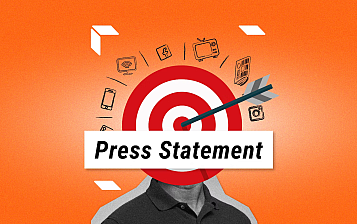Liberties’ press statement on the vote at the European Parliament on targeted political advertising.
Members of the European Parliament (EP) today adopted by a large majority (433 + 61 – 110 absent) its position on the Regulation on the transparency and targeting of political advertising proposal. The EP has significantly strengthened the proposal and made it more ambitious to protect democratic processes in the EU by drastically limiting the use of personal data to target political advertising.
The Civil Liberties Union For Europe (Liberties) welcomes the result of the vote, because the new law will require political parties, online platforms, and agents to be more transparent about political advertisements, and limit the targeting of people both online and offline. Also, minors will be safe from targeted political ads. According to the adopted mandate for legislation, political actors will only be able to use basic data to target potential voters: constituency, language, or whether the person is a first-time voter. They can also use data that is voluntarily shared with advertisers.
“This is great news and a major development for all democracies in the EU. While the Digital Services Act limits targeted advertising based on sensitive data, with the new legislation on political advertising we will have additional limitations on political advertising.. This development will limit political actors delivering conflicting messages to different segments of society, which creates silos and distorts democratic procedures. Limitations on political advertising supports people’s right to form their political opinion without interference, which is the precondition of fair elections across Europe”, said Eva Simon, senior advocacy officer at Liberties.
The next phase is the trilogue. Liberties will continue advocating for maximum transparency and minimum targeting in relation to political advertising.
Background
In a report released last September, Liberties and local partners, Lakmusz and TASZ, found evidence showing how targeted political ads allowed political parties to say different things to different segments of voters during the elections campaign in Hungary. For example, Prime Minister Viktor Orbán targeted exclusively male Facebook users with discussion of Russia’s war in Ukraine (“We help! Let’s protect Hungary! We stay out of war, we help those in need!”). As the report pointed out, it is fully unjustifiable for a politician holding or aspiring to public office to restrict messages that are of great general interest to a certain gender or to any other subgroup. Liberties has been working on this file extensively.
About Liberties
The Civil Liberties Union For Europe is a Berlin-based human and digital rights organization campaigning with 19 member organizations across the EU. Liberties publishes the largest independent annual Rule of Law Report in the EU, as well as the Europe-wide annual Media Freedom Report. As an EU watchdog, Liberties closely follows the development of the DSA, the Proposal on Political Advertising & Transparency, the CSAM, the anti-SLAPP Proposal, the AI Act and frequently publishes reports on issues about privacy or surveillance and more.
